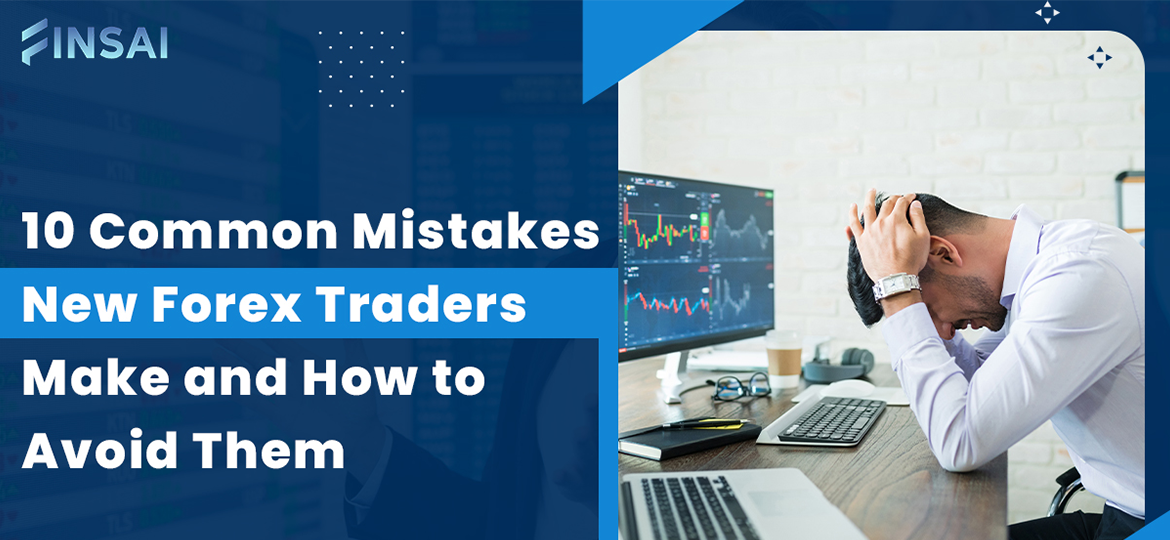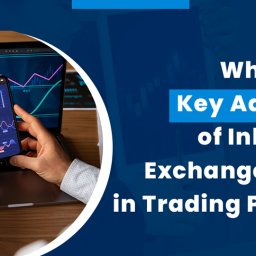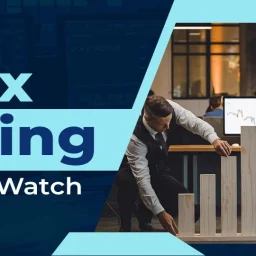
Although forex trading is an interesting and maybe lucrative hobby, especially for beginners, it comes with hazards. Many fresh traders enter the market without fully appreciating the complexity involved, which results in expensive errors. Ten frequent mistakes beginning forex traders will be discussed in this post, together with doable advice on how to prevent them.
1. Insufficient Preparation and Education
Starting without a strong grasp of forex trading for beginners is among the most important errors new traders make. The forex market is complicated, and many elements affect currency values, including market mood, geopolitical events, and economic data.
How to Avoid It:
- Educate Yourself: Invest time learning the foundations of forex trading before you begin trading. Essential subjects like technical analysis, fundamental analysis, and risk management abound in Internet courses, tutorials, and books.
- Practice with a Demo Account: Most forex firms have demo accounts available that allow you to practice trading with virtual money. Before risking actual money, familiarize yourself with the trading platform using a demo account and test your techniques.
2. Overleversizing
Leverage lets traders control a big position using little capital. Leverage can cause major losses even when it increases profits. Although many rookie traders are tempted to utilize large leverage in order to boost their possible earnings, this strategy usually backfires.
How to Avoid It:
- Educate Yourself: Stick to lower leverage ratios, particularly if you are just starting and should exercise cautious use. Usually, one should utilize no more than 10:1 leverage until one is more experienced.
- Recognize the hazards: Understand that leverage magnifies losses as much as gains. Should the market turn against you, be ready for the likelihood of losing more than just your original outlay.
3. Ignoring Risk Control
While many beginners ignore risk management, it is absolutely vital in forex trading. Even with a decent trading technique, without a suitable risk management plan, you could rapidly empty your trading account.
How to Avoid It:
- Set Stop-Loss Orders: Always use stop-loss orders to control your possible losses on each trade. A stop-loss order closes your trade automatically at a set price.
- Risk Only What You Can Afford to Lose On One Trade: Never risk more than a modest portion of your trading capital. Many seasoned traders advise risking just 1-2% of your account balance each deal.
4. Trading Without Direction
Starting the forex market without a defined trading strategy is a surefire catastrophe. Including entrance and exit locations, risk control guidelines, and objectives, a trading plan details your approach.
How might one avoid it?
- Create your trading plan: Before you begin trading, establish a thorough trading plan. Your plan should call for your trading objectives, risk tolerance, and the techniques you will employ to reach those objectives.
- Follow Your Plan: Once you have a strategy in place, regularly follow it. Steer clear of making snap judgments motivated by market noise or emotional appeal.
5. Overtrading
Often motivated by the need to make quick profits, overtrading results from traders occupying too many positions in the market. This kind of activity might result in major losses since traders do not have enough money to maintain several positions or might act poorly under stress and tiredness.
How to Avoid It:
- Trade Less, Not More: Trade less, not more; give quality first priority over volume. Making a few well-considered trades is preferable to spreading out several holdings without a defined plan.
- Determine trading limits: Calculate your daily or weekly trade count and keep to this limit. This will enable you to keep discipline and prevent overtrading.
6. Pursuing the Market
Often driven by fear of missing out on possible gains, chasing the market is the practice of joining trades depending on previous price moves. This reactive method can result in higher danger and inadequate access points.
How to Avoid It:
- Be Patient: Be patient; instead of reacting to every market fluctuation, wait for the ideal arrangement based on your trading strategy. Effective traders are aware that finding profitable prospects depends on patience.
- Avoid Emotional Trading: Steer clear of emotional trading; it usually results in chasing the market. Though you miss a possible trade, keep cool and follow your plan.
7. Not Keeping a Trading Journal
Tracking your transactions, evaluating your performance, and spotting areas for development all depend on a trading journal—a useful tool. Many inexperienced traders, however, overlook this habit, therefore losing the chance to grow from their errors.
How to Avoid It:
- Keep Detailed Records: Record every trade you make, including the outcome, the entry and exit reasons, and your lessons learned. With time, this notebook will enable you to see trends in your trading activity and enhance your techniques.
- Review often: Spend time every week looking over your trading journal. Examining your achievements and mistakes will help you to improve your strategy and guide future decisions.
8. Discounting Fundamental Analysis
Although short-term trading requires technical research, ignoring fundamental studies could result in bad decisions. Currency values can be much influenced by geopolitics, central bank policy, and economic data.
How to Avoid It:
- Use Fundamentals: Keep updated on significant news events and the economic calendar that can influence the FX market. Knowing the larger background will enable you to decide what to trade based more on knowledge.
- Apply both approaches of analysis: In your trading approach, combine technical and fundamental analysis to obtain a whole picture of the market.
9. Holding Losing Positions Too Long
Many rookie traders make the error of clinging to losing positions in hopes that the market would finally turn to their advantage. This action could result in major losses since the market might keep moving against the posture.
How to avoid it?
- Quick Cut Loss: Realize that not every deal will turn out, and be ready to cut your losses fast. Maintaining losing positions can empty your account and restrict your capacity to seize fresh prospects.
- Create explicit exit criteria: Clearly define your departure from a transaction using profit targets and stop-loss thresholds. This will help you resist the need to hang onto losing transactions in search of a turnabout.
10. Not Changing with the Times in Terms of Markets
The Forex market is dynamic with fast-changing conditions. Ignoring these developments might cause unanticipated losses or lost possibilities.
How to Avoid It:
- Stay Flexible: Keep flexible and ready to change your trading plans depending on the state of the market. For instances of great volatility, you might have to lower your position sizes or apply tighter stop-loss settings.
- Keep on learning: The forex market is always changing; therefore, effective traders are those who keep learning and adjusting. Keep aware of fresh market changes and be ready to change your strategy as necessary.
Finish
Though there are many possible hazards on the road of forex trading for beginners, you may raise your chances of success by knowing these typical mistakes and acting to avoid them. Your finest tools for negotiating the forex market are education, discipline, and a carefully considered trading plan. Recall that trading calls for patience, experience, and a dedication to lifelong learning; it is not a get-rich-quick program. Avoiding these ten typical blunders will help you to travel towards effective FX trading.





